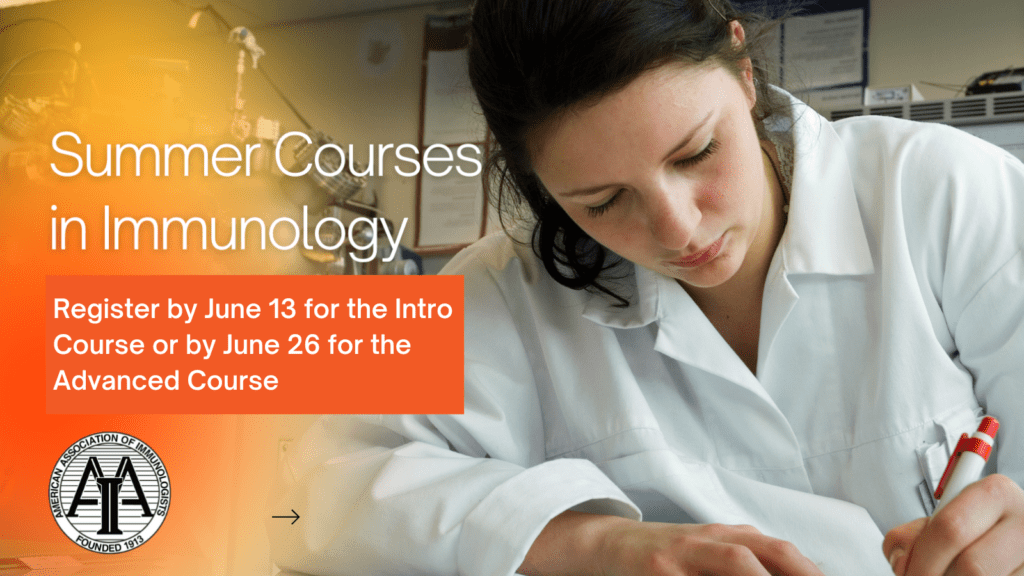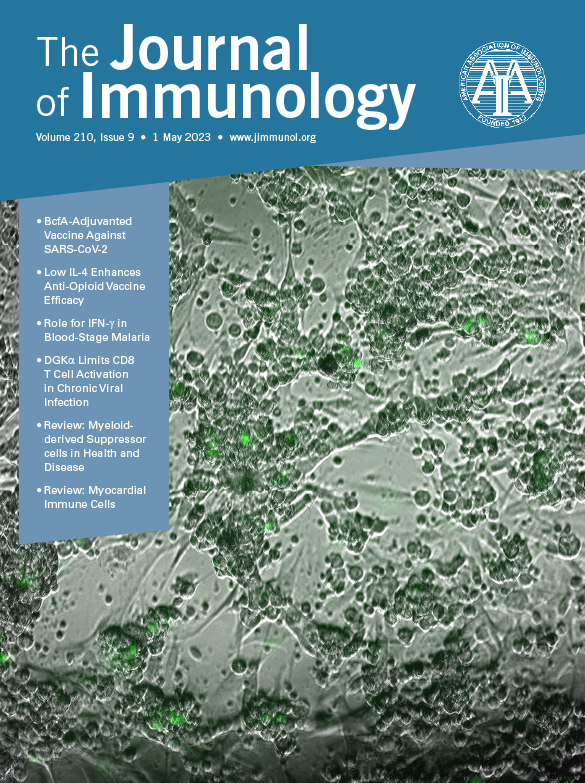
Saturday, May 13, 2023
Saturday, May 13, 2023 6:30 AM – 10:00 PM East Overlook
KiddieCorp Child Care Room Open
Child care will be provided by KiddieCorp at no cost to attendees. For details, visit the IMMUNOLOGY2023™ Child Care page.
Saturday, May 13, 2023 7:00 AM – 6:00 PM Exhibit Hall D
Registration, AAI Member Lounge, and Information Desk Open
- The Registration Desk is to just your right as you enter Exhibit Hall D.
- The AAI Member Lounge is in the front left corner of Exhibit Hall D.
- The Information Desk is just to your left as you enter Exhibit Hall D.
Saturday, May 13, 2023 7:00 AM – 6:00 PM Room 203A
Speaker Ready Room Open
All speakers are required to go to the Speaker Ready Room at least 4 hours prior to the start of their session to ensure their presentation is properly uploaded and displays correctly. For details, visit the IMMUNOLOGY2023™ Podium Presentation Guidelines page.
Saturday, May 13, 2023 7:00 AM – 6:00 PM Room 103A
AAI Staff Office Open
AAI staff will be available at the AAI Staff Office to assist attendees during the meeting.
Saturday, May 13, 2023 7:00 AM – 9:00 AM
AAI Minority Affairs Committee Meeting
By invitation only
Saturday, May 13, 2023 7:00 AM – 9:00 AM
AAI Veterinary Immunology Committee Meeting
By invitation only
Saturday, May 13, 2023 8:00 AM – 10:00 AM
AAI Education Committee Meeting
By invitation only
Saturday, May 13, 2023 8:00 AM – 11:30 AM Ballroom A
103. Major Symposium C
Generously supported by PerkinElmer Health Sciences, Inc. & Honeycomb Biotechnologies
Mechanisms of Innate Immune Memory and Tissue Adaptation
Chairs
- Shruti Naik, New York Univ. Grossman Sch. of Med.
- Joseph C. Sun, Mem. Sloan Kettering Cancer Ctr.
Speakers
- Ruslan Medzhitov, HHMI, Yale Sch. of Med., Tissue homeostasis and inflammation
- Luis B. Barreiro, Univ. of Chicago, Genetic and epigenetic determinants of inter-individual variation in innate immune responses to infectious agents
- Timothy E. O’Sullivan, Univ. of California, Los Angeles, Transcriptional and epigenetic control of natural killer cell memory
- Ai Ing Lim, Princeton Univ., Pre-birth immune education
- Steven Z. Josefowicz, Weill Cornell Med., Epigenetic memory of inflammation and infection in hematopoietic progenitor cells
- Shruti Naik, New York Univ. Grossman Sch. of Med., Adaptive and maladaptive immune-epithelial interactions
Saturday, May 13, 2023 8:00 AM – 11:30 AM Ballroom B
104. Major Symposium D
Aging, Obesity, and Adverse Immune Responses
Chairs
- Lydia Lynch, Brigham and Women’s Hosp.
- Andrew E. Hogan, Maynooth Univ., Ireland
Speakers
- Lydia Lynch, Brigham and Women’s Hosp., Uncoupling the effects of obesity from dietary lipids on cancer development
- Andrew E. Hogan, Maynooth Univ., Ireland, MAITabolism: Unravelling the impact of obesity on human MAIT cells and their contribution to disease
- Semir Beyaz, Cold Spring Harbor Lab., Dietary regulation of stem cell—immune cell—microbiome interactions that influence cancer
- Susan M. Kaech, Salk Inst. for Bio. Sts., You are what you eat: nutrient preferences by effector and exhausted T cells
- Alison E. Ringel, Ragon Inst. of MGH, MIT and Harvard, Aging and immunity in the tumor niche
Saturday, May 13, 2023 8:00 AM – 10:00 AM Room 207A
105. Society for Immunotherapy of Cancer (SITC) Symposium
Building the Antitumor Repertoire
Chairs
- Lisa H. Butterfield, Univ. of California, San Francisco
- Stephen P. Schoenberger, La Jolla Inst. for Immunology
Speakers
- Lisa H. Butterfield, Univ. of California, San Francisco, Dendritic cell dysfunction and making better vaccines
- Stephen P. Schoenberger, La Jolla Inst. for Immunology, ACT with NeoAg-specific CD4+ T cells
- Neeha Zaidi, Johns Hopkins Univ., Ras antigen vaccines, GVAX vaccines, and pancreatic cancer combinations
- Gordon J. Freeman, Dana-Farber Cancer Inst., Checkpoint modulation of the T cell repertoire
Saturday, May 13, 2023 8:00 AM – 10:00 AM Room 209ABC
106. Block Symposium
Cellular Mechanisms of Immune Response Regulation: B Cell Responses and Immunity in the Skin
Chairs
- Matthew Kudek, Med. Col. of Wisconsin
- Nancy Monson, Univ. of Texas, Southwestern
Speakers
- Rachel George, NIAID, NIH, B cell responses to membrane-presented antigens require the function of the mechanosensitive calcium channel Piezo1
- Jaeyong Jung, Rutgers—The State Univ. of New Jersey, Effects of IL-9 on TRAF3-deficient B cell activation
- Lance K. Blevins, Michigan State Univ., Single cell transcriptomics identify AHR and CD9 as markers of CD14+ atypical B cells
- Renan de Carvalho, Rockefeller Univ., Clonal replacement sustains long-lived germinal centers primed by respiratory viruses
- Aurélie Bouteau, Thomas Jefferson Univ., Steady-state Langerhans cells induce Tfh and B cell responses through a type I interferon and IL-6 independent mechanism
- Otgonzaya Ayush, NIAMS, NIH, Injury-induced hair growth response is promoted by tissue macrophages via insulin-like growth factor 1
- Wenwu Zhang, Indiana Univ. Sch. of Med., The therapeutic role of fibronectin in the re-epithelialization response following wounding in a human skin/mouse xenografting model
- Wenwu Zhang, Indiana Univ. Sch. of Med., Diminished γδ T Cells during allergic skin inflammation is mediated by IL-4 signaling in keratinocytes
Saturday, May 13, 2023 8:00 AM – 10:00 AM Room 207B
107. Block Symposium
Controlling Immune Responses to Microbial, Parasitic, and Fungal Infections: Inflammation and Vaccination
Chairs
- Bolaji N. Thomas, Rochester Inst. of Tech.
- Richard Lee Reinhardt, Nat. Jewish Hlth.
Speakers
- Jessica R. Taddeo, Lewis Katz Sch. of Med., Temple Univ., Investigating the lipid-immune signaling axis in modulating the inflammatory response to Salmonella enterica serovar Typhimurium infections
- Albersy Armina-Rodriguez, Univ. of Puerto Rico Med. Sci. Campus, Fasciola hepatica Fh15 promote survival in a mouse septic shock model and downregulates inflammatory cytokines
- Som G. Nanjappa, Univ. of Illinois, Urbana-Champaign, Sialophorin is an essential host element for vaccine immunity against pulmonary fungal infections
- Bridget Alexander, Univ. of Colorado Anschutz Med. Campus, Neonatal helminth infection and chronic type 2 inflammation promotes immune suppression through FcγRIIb
- Andrew W. Simonson, Univ. of Pittsburgh Sch. of Med., CD8+ lymphocytes contribute to immunologic bottlenecks in Mycobacterium tuberculosis infection
- Blanda Di Luccia, Stanford Univ. Sch. of Med., Gut regulatory T cells mediate immunological tolerance in Salmonella-infected super-spreader hosts
- Om Prakash Singh, Banaras Hindu Univ., India, CD4+ T cells show a cytolytic phenotype functions in human visceral leishmaniasis
- Joselyn Natasha Allen, Walter Reed Army Inst. of Res., Plasmodium falciparum liver stage antigens as mRNA vaccine induce divergent B cell and CD4 T cell responses in mice
Saturday, May 13, 2023 8:00 AM – 10:00 AM Room 206
108. Block Symposium
Immune Cell Drivers of Human Disease
Chairs
- Elizabeth Leadbetter, Univ. of Texas Hlth. Sci. Ctr. at San Antonio
- Sarah Henrickson, Univ. of Pennsylvania
Speakers
- Jessica Maya, Cornell Univ., Investigating T cell populations for immune cell exhaustion in myalgic encephalomyelitis/chronic fatigue syndrome
- Raphael Reyes, UT Hlth. San Antonio, Plasticity of atypical B cell composition and function in response to malaria
- Antoine M. Guerin, Garvan Inst. of Med. Res., Australia, Strong adaptive immunity in humans with inherited CD4 deficiency
- Deborah L. Cross, Univ. of Washington Sch. of Med., MR1-restricted T cell clonotypes are associated with resistance to Mycobacterium tuberculosis infection
- David S Iu, Cornell Univ., Single cell immune atlas of myalgic encephalomyelitis/chronic fatigue syndrome identifies substantial transcriptional dysregulation
- Jose S. Campos Duran, Perelman Sch. of Med., Univ. of Pennsylvania, Amplified STAT3 signaling alters expression of CD39 in STAT3 gain-of-function (STAT3 GOF) and in healthy donor CD8+ T cells
- Kevin D. Mangum, Univ. of Michigan, Ann Arbor, The histone methyltransferase Whsc1 regulates TGFβ-driven macrophage to myofibroblast transition
Saturday, May 13, 2023 8:00 AM – 10:00 AM Room 202B
109. Block Symposium
Regulation of B Cells and Role of Antibodies in Autoimmunity
Chairs
- Emily Moser, Univ. of Florida Col. of Med.
- Jason D. Weinstein, Rutgers New Jersey Med. Sch.
Speakers
- Shili Li, Univ, of Texas, San Antonio Hlth., B cell Tet2 promotes maturation of the antibody response through active DNA demethylation and OGT-mediated histone glycosylation of Aicda and Prdm1 loci
- Chien-Hsin Huang, Genomics Res. Ctr., Academia Sinica, Taiwan, Dissecting the functional role of SENP2 in B cells and systemic lupus erythematosus
- Marie Dominique Ah Kioon, Hosp. for Special Surgery, CXCL4, a chemokine upregulated in systemic sclerosis patients, abrogates TLR9 signaling and central tolerance in B cells
- Kathryn Sullivan, Univ. of Alabama at Birmingham, Sch. of Med., 17β-estradiol and B-cell intrinsic type I interferon amplify toll-like receptor 7 signaling loop in B cells of female lupus prone BXD2 mice
- Danni Zhu , Harvard Med. Sch., Follicular B cell derived CD21lo B cells are immediate precursors to autoreactive extrafollicular antibody secreting cells 5
- Gina Marie Sanchez, Rutgers Bio. and Hlth. Sci., Impaired expansion and selection of geminal center B cells in lupus drives autoantibody-producing cells
- S. Janna Bashar, Univ. of Wisconsin, Madison, Macrophage extracellular traps require peptidylarginine deiminase 2 and 4 and are a source of citrullinated antigens bound by rheumatoid arthritis autoantibodies
Saturday, May 13, 2023 9:00 AM – 1:00 PM Exhibit Hall D
Trainee Abstract and Poster Award Check Distribution
Recipients of Trainee Abstract and Trainee Poster Awards may pick up their award checks at the Information Desk, just inside Exhibit Hall D.
Saturday, May 13, 2023 9:00 AM – 5:30 PM West Overlook
NIH Grant Review and Funding Information Room
NIH program and review staff will be available in the NIH Grant Review and Funding Information Room for individual conversations and consultations. The schedule will be posted below, on the IMMUNOLOGY2023™ Careers page and on-site to show specific times staff members will be available to answer questions about the scientific review process, grant/fellowship opportunities, and NIH institute-specific interests. Consultations will be available on a drop-in basis. No appointments are necessary.
Schedule for Saturday, May 13
- 9:30 AM – 10:30 AM: Mike Humble, NIEHS; Debbie Hodge,
NIAID; Scott Jakes, NIAID - 10:30 AM – 11:30 AM: Lillian Kuo, NCI; Timothy Gondre-Lewis, NIAID; Vanitha Raman, NIAID; Hiten Chand, NIAID
- 11:30 AM – 12:30 PM: Chao Jiang, NIAID; Marie Mancini, NIAMS;
Mercy PrabhuDas, NIAID; Anuja Mathew, NIAID - 12:30 PM – 2:30 PM: Closed for NIH Grants Workshop: Demystifying the Grant Application Submission, Review and Funding Process, Room 209ABC.
- 2:30 PM – 3:30 PM: Conrad Mallia, NIAID; Tera Bounds, CSR;
Courtney Pinard, NIMH; Kentner Singleton, NIAID - 3:30 PM – 4:30 PM: Timothy Gondre-Lewis, NIAID; Xinrui Li, CSR;
Jim Snyder, NIAID - 4:30 PM – 5:30 PM: Mike Humble, NIEHS; Mercy PrabhuDas, NIAID;
Michael Opata, NIAID - Additional Staff (will join intermittently): Alok Mulky, CSR; Scott Jakes, NIAID
Saturday, May 13, 2023 9:00 AM – 5:00 PM Room 305
AAI StoryBooth 2023: COVID-19 Stories
Bring your colleagues, mentors, collaborators, or friends to record your stories, shared experiences, and thoughts on how COVID-19 impacted your research, career, and life.
Please note that the booth will be closed every day from 12:00 PM – 1:00 PM for lunch.
Saturday, May 13, 2023 9:30 AM – 4:30 PM Exhibit Hall D
Exhibit Hall Open
The Exhibit Hall at IMMUNOLOGY2023™ brings attendees and exhibitors together for three event-filled days of booth displays of products and services and educational workshops hosted by exhibiting companies. For details, visit the IMMUNOLOGY2023™ Exhibitors page and the IMMUNOLOGY2023™ Exhibitor Workshops page.
Saturday, May 13, 2023 10:00 AM – 10:45 AM Exhibit Hall D, Room 1
110. Exhibitor Workshop: Sony Biotechnology, Inc.
TAC-T Cells Elicit Durable Anti-Tumor Responses in Preclinical Models of Solid Tumors
Presenter
- Heather L. MacGregor, Ph.D., Senior Scientist, Triumvira Immunologics Inc.
The T cell antigen coupler (TAC) is a novel chimeric receptor that redirects TAC-engineered T cells against tumor antigens and activates T cells via the endogenous T cell receptor complex. TAC01-HER2, a first-in-class TAC-T product targeting HER2 (ERBB2), has entered a phase I/II clinical trial. We characterized TAC-T cells during anti-tumor responses. Kinetics of proliferation, TCR signaling, activation, and memory generation by tumor-activated TAC-T cells were assessed by Sony® ID 7000 spectral flow cytometer and by scRNA-seq. The cytotoxic robustness was assessed through multiple rounds of tumor cell exposure in vitro and immunologic durability was tested in a xenograft tumor rechallenge study. We show that TAC-T product mounts a durable anti-tumor response, comprising functionally active T cells with robust self-renewal capacity that do not become terminally exhausted.
Saturday, May 13, 2023 10:00 AM – 10:45 AM Exhibit Hall D, Room 2
111. Exhibitor Workshop: Canopy Biosciences–A Bruker Company
Quantitative Single-Cell Spatial Immune Profiling with ChipCytometry™
Presenters
- Tim Sindelar, Product Manager, Precise Spatial Multiplexing with ChipCytometry: An Open-Source Solution to High-Throughput Spatial Biology
- Gustavo A. Monasterio Ocares, DDS, Ph.D., Postdoctoral Researcher, Villablanca Lab, Immunology and Allergy Division, Dept. of Medicine, Solna, Karolinska Institutet, Spatial Immunome of Distal Tissues During Intestinal Inflammation
Single-cell spatial immune profiling is transforming the way we study immunology by bringing advanced single-cell analysis to the context of intact tissue. Join us to learn how the ChipCytometry platform enables quantitative single-cell analysis of high-plex assays for deep immune profiling in tissue samples. Hear from a ChipCytometry user about how the technology is applied to spatially dissect the immunome from distal tissues during intestinal inflammation.
Saturday, May 13, 2023 10:00 AM – 10:45 AM Exhibit Hall D, Room 3
112. Exhibitor Workshop: 10x Genomics
Spatial transcriptomics of pancreatic premalignancies reveals cellular and molecular alterations of progression to pancreatic ductal carcinoma
Presenter
- Luciane T. Kagohara, Ph.D., Associate Professor of Oncology, Sidney Kimmel Comprehensive Cancer Ctr., Johns Hopkins Univ.
The tumor microenvironment is composed of highly heterogeneous niches, often with varying degrees of immune infiltration. The spatial distribution of immune cells with respect to malignant cells can directly impact patient prognosis and overall survival outcomes. The Visium CytAssist Spatial Gene Expression assay uses a whole transcriptome probe-based approach, termed RTL, to detect and quantify mRNA expression with spatial context.
Saturday, May 13, 2023 10:15 AM – 11:15 AM Room 209ABC
113. Interviewing for a Job
Speaker
- Derek J. Haseltine, Hertz Fndn.
This session will focus on tips and techniques to help you successfully navigate the interview process. Emphasis will be on how you can present yourself in the best possible light. You will also learn how to respond to unexpected questions. This session is open to anyone but is especially intended for student and postdoctoral attendees.
Saturday, May 13, 2023 10:15 AM – 12:15 PM Room 202B
114. Spotlight on AAI Journals
Sponsored by the AAI Publications Committee
Chairs
- Daniel J. Campbell, Benaroya Res. Inst., AAI Publications Committee Chair
- Eugene M. Oltz, Ohio State Univ. Col. of Med., Editor-in-Chief, The Journal of Immunology
Speakers
- Nitya Jain, Harvard Med. Sch., RXRA regulates the development of resident tissue macrophages
- Todd Bartkowiak, Vanderbilt Univ., Systems immunology analyses of STAT1 gain-of-function immune phenotypes reveal heterogeneous response to IL-6 and broad immunometabolic roles for STAT1
- Tiffany Taylor, Univ. of Pittsburgh, Roles of IL-17-responsive transcription factors in regulating oropharyngeal candidiasis
- Joshua J. Obar, Geisel Sch. of Med. at Dartmouth, Alveolar macrophages: controllers of the antifungal interferon response
- Zhichao Fan, UConn Health, CFTR in regulating monocyte recruitment and integrin function
- Vanessa Espinosa, Rutgers New Jersey Med. Sch., Neutrophils license the maturation of monocytes into effective antifungal effectors
A symposium featuring talks highlighting papers recently published in The Journal of Immunology and ImmunoHorizons.
Saturday, May 13, 2023 10:15 AM – 12:15 PM Room 102AB
115. International Cytokine and Interferon Society (ICIS) Symposium
Understanding and Modulating Cytokine Activity through Structural Knowledge
Chairs
- Juan L. Mendoza, Univ. of Chicago
- Ignacio Moraga, Univ. of Dundee, Univ. of Dundee, United Kingdom
Speakers
- Matthew C. Franklin, Regeneron Pharma., Structural insights into the assembly of gp130 family cytokine signaling complexes
- Juan L. Mendoza, Univ. of Chicago, The native JAK-JAK geometry in the type III IFN signaling complex limits the functional potency
- Dylan Daniel, CytomX Therapeut., Designing conditionally activated probody cytokines to localize antitumor activity to cancers
- Ignacio Moraga, Univ. of Dundee, United Kingdom, Manipulating cytokine activities in different extracellular microenvironments
- Jamie B. Spangler, Johns Hopkins Univ., Dissecting immune biology using de novo engineered cytokines
Saturday, May 13, 2023 10:15 AM – 12:15 PM Room 101
116. Chinese Society of Immunology, Taiwan (CSIT) Symposium
Novel Strategies for the Prevention and Therapy of SARS-CoV-2 Infection
Chairs
- Shie-Liang Hsieh, Genomics Res. Ctr., Academia Sinica, Taiwan
- Jenny P.-Y. Ting, Univ. of North Carolina at Chapel Hill
Speakers
- Shie-Liang Hsieh, Genomics Res. Ctr., Academia Sinica, Taiwan, Targeting the CLEC2- CLEC5A/TLR2 axis to attenuate SARS-CoV-2-induced immunothrombosis
- Kuo-I Lin, Genomics Res. Ctr., Academia Sinica, Taiwan, Vaccination with a glyco-engineered SARS-CoV-2 spike protein confers cross-strain protection in mice
- Shih-Jen Liu, Nat. Hlth. Res. Inst., Taiwan, Strategies of DNA vaccination against COVID-19
- Che-Ming Hu, Inst. of Biomedical Sci., Academia Sinica, Taiwan, Breaking down the T cell induction barrier with modular nanotechnology for anticancer and antiviral applications
Saturday, May 13, 2023 10:15 AM – 12:15 PM Room 207A
117. Block Symposium
Wasting Thyme: Thymus Function in Health and Disease
Chairs
- Jarrod A. Dudakov, Fred Hutchinson Cancer Res. Ctr.
- Mercedes Rincon, Univ. of Colorado
Speakers
- Lauren Ilyse Richie Ehrlich, Univ. of Texas, Austin, CCR4 and CCR7 differentially regulate thymocyte localization with distinct outcomes for central tolerance
- Chloe Houques, IGMM, Thymic innate lymphoid cells promote thymocyte differentiation of transplanted hematopoietic progenitors in immunodeficient mice
- Felipe Pereira, Univ. of Colorado Anschutz Med. Campus, Inactivation of GSK3β by Ser389 phosphorylation prevents thymocyte necroptosis and impacts Tcrβ and Tcrα repertoire diversity
- Yong Fan, Allegheny Singer Res. Inst., Tissue engineering human thymus from iPSCs to support human T cell development
- Menglin Jiang, St. Jude Children's Res. Hosp., Genetic tracing of thymic T cell differentiation
- Sarah A. Wedemeyer, Unversity of Texas, San Antonio Hlth., Role of paracrine mTOR signaling in regulating thymus size and function
- D. Tyler Boone, Geisel Sch. of Med., Dartmouth Col., NDRG3 is a novel regulator of T and B cell development with phosphorylation-specific activity and phenotypes
- Shil Patel, NCI, NIH, Harnessing spatial transcriptomics to study fate decisions and lineage specification in T cell development
Saturday, May 13, 2023 10:15 AM – 12:15 PM Room 201
118. Block Symposium
Big Data and Tumor Immunology
Chairs
- Dorina Avram, H. Lee Moffitt Cancer Ctr. and Res. Inst.
- Jose R. Conejo-Garcia, Duke Univ.
Speakers
- In Kang, Korea Advanced Institute of Sci. and Technol., The landscape of glioma-infiltrated immune cells after immune checkpoint blockade treatment
- Sabina Kaczanowska, NCI, NIH, Deep myeloid cell profiling provides new insights into modulators of CAR T cell expansion in patients with pediatric solid tumors
- Timothy P. McMullen, Univ. of California, Irvine, Insights into the regulation of brain metastasis by natural killer cells using single-cell RNA sequencing and imaging mass cytometry
- Emanuel Salazar Cavazos, NCI, NIH, Analyzing the immunological variability in T cell/tumor interactions to identify a subpopulation of CD8+ T cells (Spark T cells) that drives succesful cancer immunotherapy
- Sepideh Dolatshahi, Univ. of Virginia, Sch. of Med., Systems approaches to characterize the local heterogeneities in NK cell antitumor immunity in MHC I-disparate human non-small cell lung cancer
- ByeongHoon Kang, Korea Advanced Institute of Sci. and Technol., Single cell RNA sequencing reveals heterogenous immune landscape of tumor infiltrated immune cell population against glioblastoma
Saturday, May 13, 2023 10:15 AM – 12:15 PM Room 204ABC
119. Block Symposium
Infectious Etiology of Diseases
Chairs
- Gianna Hammer, Univ. of Utah
- Ning Jenny Jiang, Univ. of Pennsylvania
Speakers
- Jennifer Leigh Cannons, NIAID, NIH, PI3Kdelta coordinates transcriptional, epigenetic and metabolic changes to promote effector CD8 T cells differentiation
- Camilo Daniel Cabrera-Garcia, Universidad de Concepcion, Chile, Patients who develop insulin resistance 4-months post-COVID-19 exhibited higher NETosis and miR-21-5p expression than COVID-19 patients without metabolic alterations
- Charitha Madiraju, Hackensack Meridian Sch. of Med., Immune regulatory markers in clinical cases of COVID-19
- Norihide Jo, Kyoto Univ., Japan, Delayed CD4+ T-cell response in older adults is associated with reduced immunogenicity and reactogenicity after COVID-19 mRNA vaccination
- James Oscar Moore-Stanley, Univ. of Manchester, United Kingdom, Paradoxically Increased Inflammation in Immunosuppressed Individuals with COVID-19
- Rajesh Parmar, Univ. of California, Los Angeles, Integrated transcriptomic analysis reveals T and B cell immune signatures influencing resolving outcome in MRSA bacteremia
- Lucie Rodriguez, Karolinska Institutet, Sweden, Immune system perturbations in patients with severe long COVID
- Michael J. Malone, Univ. of Pennsylvania, The immunodominant SARS-COV-2 CD8+ T cell repertoire is capable of resisting antigenic drift
Saturday, May 13, 2023 10:15 AM – 12:15 PM Room 207B
120. Block Symposium
Metabolic and Migratory Pathways of Leukocytes in Inflammation
Chairs
- Dequina Nicholas, Univ. of California, Irvine
- Luis Franco, NIH
Speakers
- Wu Yuanyuan, Uconn Health, Distinct roles of kindlin-3 and talin-1 in neutrophil beta2 integrin clustering
- Ariel M. Bohner, NIAMS, NIH, In vivo cell tracking reveals the pattern of neutrophil tissue distribution at baseline and in response to glucocorticoid treatment
- Honghong Sun, Perelman Sch. of Med., Univ. of Pennsylvania, TIPE proteins control directional migration of human T cells via GPCR and lipid second messenger signaling
- Naveena Ujagar, Univ. of California, Irvine, Th17 cells of type 2 diabetic patients present an aberrant fatty acid metabolic pathway
- Jessica Huang, Univ. of Washington, Dendritic cells regulate innate cell trafficking and lymph node organization during inflammation
- Farhat Parween, NIAID, NIH, Extravasation of pathogenic human type 17 Th cells requires both endothelial cell-bound and non-cell bound chemokines
- Shamik Majumdar, NIAID, NIH, Ackr1-deficient mice are protected from lethal SARS-CoV-2 challenge
- Marianne Kanellias, Emulate, Inflammatory bowel disease (IBD)-specific immune cell recruitment and response can be modulated with anti-TNF-α therapies in the human colon intestine-chip
Saturday, May 13, 2023 10:15 AM – 12:15 PM Room 206
121. Block Symposium
The Tumor Microenvironment: Novel Immune Checkpoints and Mechanisms of Immune Suppression
Chairs
- Defne Bayik, Univ. of Miami
- Jun Wang, New York Univ.
Speakers
- Juyeun Lee, Cleveland Clin. Fndn., Loss of testosterone leads to impaired T cell function via glucocorticoids in mouse glioblastoma models
- Lucas F. Loffredo, Columbia Univ. Irving Med. Ctr., Exploring the effects of tissue structural cell and tumor cell heparan sulfate on immune system trafficking, activation, and intercommunication via amphiregulin
- Ameet A. Chimote, Univ. of Cincinnati Col. of Med., A novel ion channel-mediated mechanism facilitates the inhibitory effect of exosomes on anti-tumor immune responses
- Ru Wen, Stanford Univ. Sch. of Med., Siglec-7/9 are novel immune checkpoints for prostate cancer
- Gabriel J. Rodriguez-Garcia, Vanderbilt Univ., Tumor cell secretome induces the expression of the immune checkpoint NKG2A on CD8+ T cells
- Qiao Lu, New York Univ. Grossman Sch. of Med., A membrane-associated inhibitory axis of MHC-I presentation for cancer immune evasion
- Venkata Krishna Kanth Makani, Univ. of Pittsburgh, Discovery of human papilloma virus and patient-specific neoantigens targeted by CD8+ T cells in HNSCC
Saturday, May 13, 2023 11:15 AM – 12:00 PM Exhibit Hall D, Room 1
122. Exhibitor Workshop: STEMCELL Technologies, Inc.
Next-Generation Tools for NK Cell Research
Presenters
- Amanda Durkin, Ph.D., Product Manager, Immunology
- Peter Morin, Technical Scientist, Research & Development
Natural killer (NK) cells are gaining popularity as a therapeutic tool for their unique ability to target and kill virus-infected and cancer cells without prior immune sensitization. Adopting an efficient, scalable NK workflow is key to staying at the forefront of this evolving field. Join this workshop to learn about STEMCELL’s NK cell isolation and expansion products. We will also feature the Easy 250 EasySepTM magnet, a new scalable and efficient system for manual column-free isolation. These next-generation tools enable researchers to streamline and accelerate their NK cell research.
Saturday, May 13, 2023 11:15 AM – 12:00 PM Exhibit Hall D, Room 2
123. Exhibitor Workshop: BD Biosciences
Optimization of a High-Parameter Spectral Flow Cytometry Panel to Investigate Human Immune Diversity
Presenter
- Robert (Bob) Balderas, VP of Biological Sciences
In this workshop, we will discuss how different experimental conditions and fluorochrome choices can affect the biological resolution and interpretation of a deep 38-color NK and T cell spectral flow cytometry panel. This presentation will be based on real-life decisions made by immunologists when designing panels and experiments. Ultimately, we will demonstrate the importance of generating high-quality data to reveal the donor-to-donor variability of NK and T cell immunophenotypes at an unprecedented depth.
Saturday, May 13, 2023 11:15 AM – 12:00 PM Exhibit Hall D, Room 3
124. Exhibitor Workshop: NanoCellect
Identifying and Isolating Highly Functional Cell Therapy Agents with the Gentle and Sterile WOLF Microfluidic Cell Sorter
Presenter
- Aaron Christensen-Quick, Ph.D., Senior Scientist
This workshop is for Cell and Gene Therapy (CGT) researchers and industry professionals who would like to learn more about using flow cytometry and cell sorting for CGT production. Along the way, we will highlight the importance of using viable, healthy, functional cells as starting material. We will also explore how the NanoCellect WOLF Cell Sorter can help CGT researchers analyze and gently sort cells that last. Join us for a journey of cell isolation, activation, infection, expansion, and target cell killing.
Saturday, May 13, 2023 11:30 AM – 1:30 PM Room 202A
125. AAI ASPIRE Award Symposium
AAI President Mark M. Davis will introduce the awardees and present the awards immediately prior to the symposium.
Chairs
- Joan Goverman, Univ. of Washington, AAI Secretary-Treasurer
- Akiko Iwasaki, HHMI, Yale Sch. of Med., AAI Vice President
Award Recipients
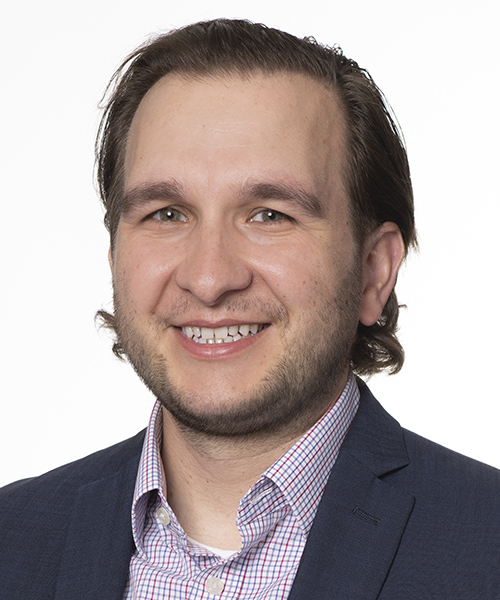
Todd Bradley
Children's Mercy Kansas City
Natural killer cell immunoregulation of the HIV-1 antibody response
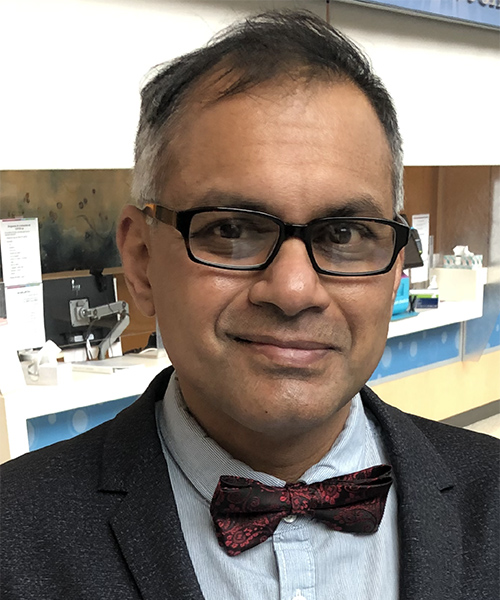
Hitesh Deshmukh
Cincinnati Children's Hosp. Med. Ctr.
Establishing lifelong trajectories of pulmonary health before and after birth
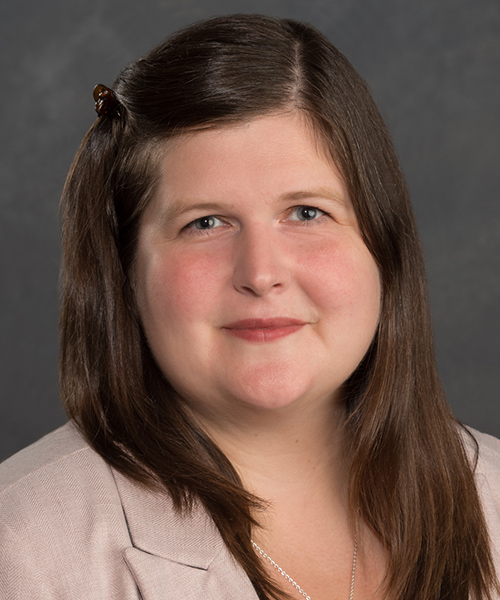
Rebecca Martin
Virginia Commonwealth Univ.
Targeting dendritic cell metabolism promotes allergen tolerance in asthma
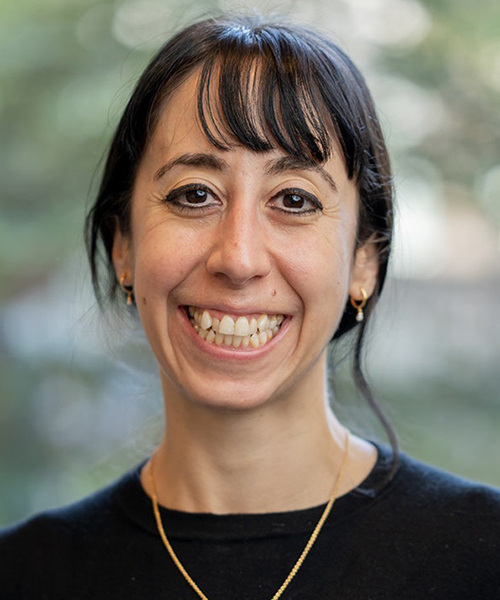
Gabrielle Rizzuto
Mem. Sloan Kettering Cancer Ctr.
Glycan-dependent mechanisms of fetomaternal tolerance
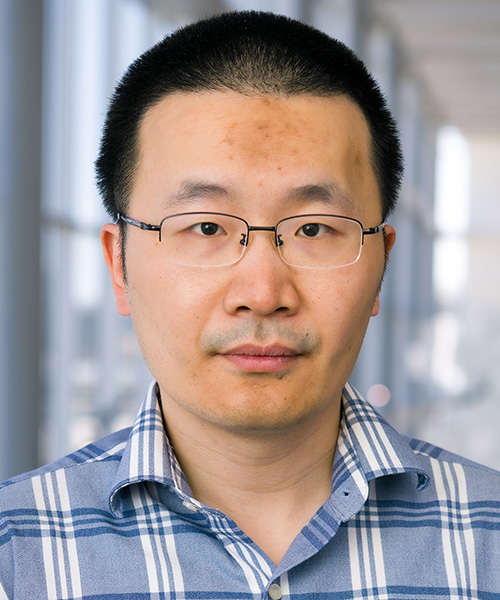
Tuoqi Wu
Univ. of Texas Southwestern Med. Ctr.
Transcriptional regulation of long-term T-cell immunity
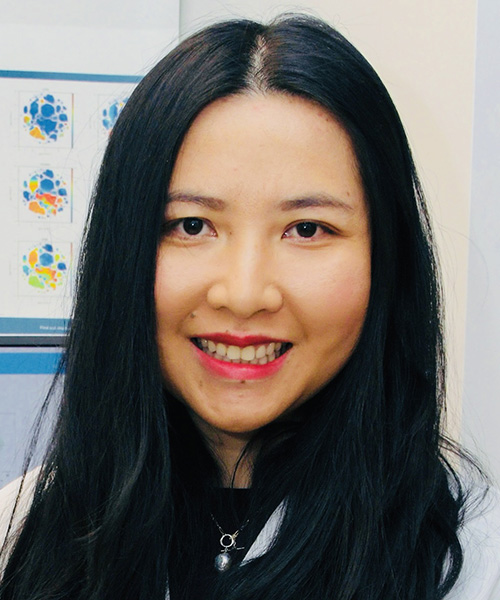
Melody Yue Zeng
Weill Cornell Med.
Immune regulation by the gut microbiome in early life
The AAI ASPIRE Awards recognize early career research accomplishments and professional promise in the field of immunology.
Saturday, May 13, 2023 11:45 AM – 1:15 PM West Salon GH
126. Careers in Science Lecture and Roundtables
Sponsored by the AAI Education Committee and AAI Committee on the Status of Women
Chair
- Dorina Avram, Moffitt Cancer Ctr., Committee on the Status of Women Chair
Speaker
- Gwendalyn J. Randolph, Washington Univ. Sch. of Med. in St. Louis, Avoiding tokenism—choosing your seat at the table
At this popular session, attendees will have the opportunity to meet with experienced scientists to explore specific career issues important to today's scientists. Gain insights into issues you are confronting in your own career. Topics include international opportunities in science, succeeding in graduate school, tips on grant writing, considerations for scientists in M.D.-Ph.D. careers, and exciting careers beyond the bench. Topics include building productive mentor/mentee relationships; overcoming self-doubt; and tackling gender biases in recruitment, research, and leadership; and navigating work/life issues, such as balancing careers with family and transitioning from specific career stages, which may be relevant to any work environment (academic research, biotech industry, governmental agencies, nonprofit). Don’t miss this great opportunity!
Registration Fee: $30 (includes lunch)
Discussion Topics
A Conversation about Bystander Intervention
- Gwendalyn J. Randolph, Washington Univ. Sch. of Med. in St. Louis
New PI (mentoring effectively, recruiting students and postdocs, preparing for promotion, early career self-promotion)
- Venuprasad Poojary, UT Southwestern Med. Ctr.; Gregory F. Sonnenberg, Weill Cornell Med.
Succeeding in Graduate School
- Lee Ann Garrett-Sinha, Univ. at Buffalo, SUNY; Joseph Larkin, III, Univ. of Florida; Brian Sheridan, Stony Brook Univ.; David Weiner, Wistar Inst.
Graduate Student to Postdoc
- Ann Griffith, UT Health San Antonio; Wei Luo, Indiana Univ. Sch. of Med.; Joyce Wu, Ohio State Univ.
Postdoc to PI
- Lisa Denzin, Child Health Inst. of New Jersey; David Hafler, Yale Sch. of Med.; Shruti Naik, New York Univ. Grossman Sch. of Med.; Irene Salinas, Univ. of New Mexico; Robin Stephens, Rutgers New Jersey Med. Sch.
Work/Life Balance
- Kate MacNamara, Albany Med. Col.; Liang Zhou, Univ. of Florida
Building Networking Skills
- Judith Cannon, Univ. of New Mexico; Cheong-Hee Chang, Univ. of Michigan; Rachel Gerstein, Univ. of Massachusetts Chan Med. Sch.; Amanda Jamieson, Brown Univ.
Biotech and Industry
- Richard Boismenu, Sangamo Therapeutics; Richard Hanna, AstraZeneca; James Jin, Biocytogen Boston Corp.; Kiyomi Komori, Kinevant Sciences; Nikki B. Marshall, GSK; Sadiye Rieder, Horizon Therapeut.; Karsten Sauer, Cullinan Oncology; Erica Stone, GigaGen
Careers in Science Policy
- Lauren G. Gross, AAI; Emily Kansler, AAI
Grant Writing for PIs
- Michele Anderson, Univ. of Toronto; Jie Sun, Univ. of Virginia
Grant Writing for Fellowships
- Shannon Dunn, St. Michael’s Hosp., Toronto; Virginia Shapiro, Mayo Clin.
Research from the M.D., Ph.D. Perspective/The Physician Scientist
- Maria-Louisa Alegre, Univ. of Chicago; Amal Amer, Ohio State Univ.; Onyinye Iweala, Univ. of North Carolina at Chapel Hill; Fayyaz Sutterwala, Cedars-Sinai Med. Ctr.
Careers in Veterinary Immunology
- Weishan Huang, Louisiana State Univ.; Crystal Loving, National Animal Disease Ctr.
International Opportunities
- Haiyan Liu, Natl. Univ. of Singapore; Gianluca Veggiani, Louisiana State Univ. and Cold Spring Harbor Lab.
How to Build Productive Mentor/Mentee Relationships
- Barbara Kee, Univ. of Chicago; Kashayarsha Khazaie, Mayo Clin.
Balancing Teaching Responsibilities with Research
- Deborah Brown, Clarkson Univ. and Trudeau Inst.; Julie Jameson, California State Univ., San Marcos
How to Negotiate for Better Self-Promotion
- Thirumala-Devi Kanneganti, St. Jude Children’s Res. Hosp.; Malini Raghavan, Univ. of Michigan
NEW! Science Communication, Popular Science Writing, Editing
- Deepta Bhattacharya, Univ. of Arizona; Jennifer Grier, Univ. of South Carolina Sch. of Med., Greenville
Challenges for Women Mentors and PIs
- Laurence Morel, UT Hlth. San Antonio; Carla Rothlin, Yale Sch. of Med.
Academia versus Industry
- Mandy McGeachy, Cornell Univ.; Jeff Rathmell, Vanderbilt Univ. Med. Ctr.
Alternative Careers
- Dan Nevrivy, Nevrivy Patent Law Grp.
Tackling Gender Biases in Recruitment, Research, and Leadership
- Avery August, Cornell Univ.; Dorina Avram, Moffitt Cancer Ctr.
Careers in Government Agencies
- Yasmine Belkaid, NIAID, NIH; Deborah Hodge, NIAID, NIH; Kaushiki Mazumdar, CSR, NIH; Courtney Pinard, NIMH, NIH
Scientific Publishing
- Henrique Borges da Silva; Mayo Clin.; Jose Conejo-Garcia, Duke Univ.
Opportunities for Scientists in Non-profits/Foundations
- Jennifer Pesanelli, Biophysical Society; Joshua Vieth, JDRF
Saturday, May 13, 2023 12:30 PM – 1:15 PM Exhibit Hall D, Room 1
127. Exhibitor Workshop: Thermo Fisher Scientific
High-Speed Image-Enhanced Acoustic Flow Cytometry Offers New Insights into Old Protocols
Presenter
Heaven Le A. Roberts, Ph.D., Staff Scientist, R&D, Protein and Cell Analysis
As the field of image-enhanced flow cytometry continues to grow in scope and capability, users are embracing the value of visual confirmation of events coupled to traditional flow cytometry data. Conversion of this new information to numeric outcomes via artificial intelligence/machine learning efforts integrates this data with traditional fcs parameters in a highly quantitative manner. In this presentation, data from a range of samples using the Invitrogen™ Attune™ CytPix™ Flow Cytometer with automated image annotation will be reviewed.
Saturday, May 13, 2023 12:30 PM – 1:15 PM Exhibit Hall D, Room 2
128. Exhibitor Workshop: BioLegend
Stimulation with a Superagonistic Anti-CD28 Antibody Shows Treg Expansion and Provides an In Vitro Model for Immunotherapeutic Research
Presenter
- Rebecca Nickle, Ph.D., Applications Scientist
From bench to bedside, development of immunotherapeutic treatments requires the use of sophisticated technologies and applications to comprehensively describe and understand immunological processes. Here, using BioLegend’s cutting edge tools, we characterized the cellular and molecular changes that occur upon human T cell stimulation with a novel anti-CD28 superagonistic monoclonal antibody. Our workflow includes cell isolation using our magnetic separation MojoSort™ Human CD3+ T cell isolation kit, followed by activation using the Ultra-LEAF™ CD28 superagonistic monoclonal antibody, and expansion using our recombinant proteins. Resulting cultures are then subject to T cell subset characterization using LEGENDplex™ multiplex soluble analyte analysis, intracellular and surface protein analysis with our pre-defined multicolor cytometry panels, and integrated multiomic single -cell protein and RNA analysis with our TotalSeq™-A Human Universal Cocktail. Our data reveals the cellular and molecular signature of a potent human Treg activation and expansion promoted by our unique CD28 superagonistic monoclonal antibody. Taken together, we show how a full suite of BioLegend’s reagents and applications facilitate immunotherapeutic research to advance our understanding of complex immunological processes.
Saturday, May 13, 2023 12:30 PM – 1:15 PM Exhibit Hall D, Room 3
129. Exhibitor Workshop: Cytek Biosciences
Accelerate Immune Research with Pre-optimized Cytek Panels and Reagent Kits
Presenter
- Eleanor Kincaid, Ph.D., Regional Technical Applications Specialist Manager—Eastern US
The Cytek® cFluor® Human B cell monitoring kit is designed to identify and enumerate B cell subsets in human whole blood and peripheral blood mononuclear cells (PBMC). This validated, 13-marker panel is a useful tool for evaluating B cell immunodeficiency and monitoring autoimmune therapies. This seminar covers phenotype and function of B cell populations targeted by autoimmune therapy, recommended gating and analysis with sample data, and data on sample preparation and precision.
Saturday, May 13, 2023 12:30 PM – 2:30 PM Room 209ABC
130. NIH Grants Workshop: Demystifying the Grant Application Submission, Review, and Funding Processes
Chair
- Alok Mulky, CSR, NIH
Panelists
- Timothy Gondre-Lewis, NIAID, NIH
- Lillian Kuo, NCI, NIH
- Xinrui Li, CSR, NIH
This workshop will provide participants with an overview of NIH grant submission, assignment, review, and funding opportunities. Emphasis will be on discussing funding mechanisms and opportunities available through NIH, how to make an application “reviewer friendly,” and other strategies that contribute to applications that succeed in obtaining research funding, with a focus on RPG and training grant mechanisms.
The workshop will also provide information on how to understand the peer review system, which is essential to competing successfully for funding, with a focus on recent changes to the review process. NIH review and program staff will provide a broad array of expertise and encourage questions from seminar participants. This workshop is open to anyone interested in learning more about preparing an NIH grant application and obtaining NIH funding. Trainees and independent investigators are welcome.
Saturday, May 13, 2023 12:30 PM – 2:30 PM Room 101
131. Canadian Society for Immunology (CSI) Symposium
The Ontogeny and Functioning of the Immune System: Lessons from Non-mammalian Systems
Chairs
- Edan Foley, Univ. of Alberta, Canada
- Jason N. Berman, Univ. of Ottowa and Children's Hosp. of Eastern Ontario Res. Inst., Canada
Speakers
- Edan Foley, Univ. of Alberta, Canada, Single-cell resolution of the zebrafish intestinal immune response to a Vibrio cholerae infection
- Jason N. Berman, Univ. of Ottowa and Children's Hosp. of Eastern Ontario Res. Inst., Canada, Leveraging the zebrafish model for preclinical studies of the immune microenvironment in cancer
- Francesca Di Cara, Dalhousie Univ., Canada, Drosophila immunity
- Shayan Sharif, Univ. of Guelph, Canada, Chicken immunity and viral pathogens
- W. Brent Derry, Univ. of Toronto, Canada, C. elegans innate immunity
Saturday, May 13, 2023 12:30 PM – 2:30 PM Room 207A
132. Block Symposium
Barrier Inflammation and Repair
Chairs
- Sangwon Kim, Thomas Jefferson Univ.
- Sherrie Divito, Brigham and Women’s Hosp. and Harvard Med. Sch.
Speakers
- Anastasia de Poulpiquet du Halgouet, NIDCR, NIH, Role of MR1-driven signals and amphiregulin on the recruitment and repair function of skin MAIT cells
- Xiaopeng Fu, Brigham and Women’s Hosp. and Harvard Med. Sch., Use of dirty mice to study skin resident memory T cells in cancer treatments and graft-versus-host-disease
- Himanshi Tanwar, Univ. of Maryland Sch. of Dentistry, The interconnection between periodontitis and inflammatory bowel disease
- Xiangsheng Huang, niv. of Texas Hlth. Sci. Ctr., Houston, Bile acid conditioned Dendritic cells through FXR and specialize T cell function in the ileum
- Yi Dong, Johns Hopkins Univ. Sch. of Me, Investigating the interaction of inflammation-associated fibroblasts (IAFs) with colon epithelial cells in inflammatory bowel disease (IBD
- Sangwon V. Kim, Thomas Jefferson Univ., Dietary L-tryptophan determines the number of colonic regulatory T-cells and susceptibility to colitis via GPR15
- Shunichi Tayama, Tohoku Univ., Japan, Reactive persulfide controls intestinal inflammation by suppressing CD4+ T cell proliferation
- Nuria Tubau-Juni, NIMML Institute, Host metabolic reprogramming ameliorates disease severity and colitis during Clostridioides difficile infection
Saturday, May 13, 2023 12:30 PM – 2:30 PM Room 207B
133. Bock Symposium
Location, Location, Location: Cancer, Skin, Neurology, and Immunology
Chairs
- Aharon Freud, Ohio State Univ. Wexner Med. Ctr.
- John B. Sunwoo, Stanford Univ.
Speakers
- Jadie Yoonjoo Moon, Univ. of Michigan, IL-17A-mediated JMJD3 regulation of integrin alpha 3 gene expression alters migration of diabetic keratinocytes and impairs wound repair
- Tze-Yen Lin, Natl. Taiwan Univ. , Salt-induced maladaptive innate immune memory impedes stroke recovery
- Shahab Chizari, Univ. of Pennsylvania, High-throughput multidimensional characterization of CD8 T cells in MOG antibody-associated disease
- Jiaqing Hao, Univ. of Iowa, Keratinocyte FABP5-VCP complex mediates recruitment of neutrophils in psoriasis
- Jack Prazich, Univ. of Pennsylvania, High-dimensional analysis of the T cell response in multiple myeloma and the potential efficacy of harnessing tumor-reactive CD8 T cells
- Jugmohit Toor, Henry Ford Health, Dysregulation of circulating MAIT cell subsets in patients with hidradenitis suppurativa
- Christine Joh, Seoul Natl. Univ. Col. of Med., Spatial transcriptomic profiling reveals the pathophysiology of early stage hidradenitis suppurativa
- Soyoung Jeong, Seoul Natl. Univ. Col. of Med., High-dimensional profiling of circulating dendritic cells and monocytes in atopic dermatitis patients by mass cytometry
Saturday, May 13, 2023 12:30 PM – 2:30 PM Room 202B
134. Block Symposium
Mechanisms of Viral Sensing and Innate Immune Responses
Chairs
- Jeffrey Tomalka, Emory Univ.
- Susan Kovats, Oklahoma Med. Res. Fndn.
Speakers
- Philippe M. Rascle, Duke Univ. Sch. of Med., Single-cell cloning of NK cells from rhesus macaques: a new methodology for in-depth analysis of MHC-E-dependent adaptive functions
- Esther Lee, Duke Univ. Sch. of Med., Elucidating the role played by the NKG2 family of receptors in natural killer cell responses to JC polyomavirus
- Jeffrey Alan Tomalka, Emory Univ. Sch. of Med., STINGing CD4+ T cells to induce refractoriness to HIV infection
- Andrew J. Suh, Georgetown Univ., Gp120 envelope glycoproteins of HIV-1 Group M Subtype A and Subtype B differentially affect gene expression in human vascular endothelial cells
- Abigael Parrish Williams, Oklahoma Med. Res. Fndn., Sex differences in ILC2 function in influenza result from imprinted donor sex intrinsic factors independent of host sex in competitive female-male bone marrow chimeras
- Ivan Kosik, NIAID, NIH, The complement protein C1q modulates the activities of anti-influenza HA-stem and anti-SARS-Cov2-nonRBD antibodies and alters viral evolution
- Natasha M. Kafai, Washington Univ. Sch. of Med. in St. Louis, The entry receptor LDLRAD3 is critical for Venezuelan equine encephalitis virus pathogenesis and neuroinvasion in mice
Saturday, May 13, 2023 12:30 PM – 2:30 PM Room 102AB
135. Block Symposium
Molecular Mechanisms of Cytokine Function
Chairs
- Ken J. Oestreich, Ohio State Univ. Col. of Med.
- Warren Leonard, NHLBI, NIH
Speakers
- Suyasha Roy, NHLBI, NIH, Blimp-1 is a negative regulator of IL-2 signaling in T cells
- Hiroyuki Nagashima, NIAMS, NIH, Distinct 3D remodeling of Il4-Il13-Il5 loci mediates differential type 2 responses in innate versus adaptive lymphocytes
- Melissa Leonard, Ohio State Univ. Col. of Med., The Ikaros zinc finger transcription factor Aiolos as a novel regulator of T cell migration
- Cheuk Lam Cheung, Indiana Univ. Sch. of Med., Identification of a novel interleukin-9 receptor complex in non-hematopoietic cells
- Anagha Yogam , NCI, NIH, Bottoms up!: inferring relevant immune phenotypes from bulk cytokine kinetics via semi-supervised machine learning
- Ang Cui , Broad Inst. of MIT and Harvard, Dictionary of immune responses to 86 cytokines in vivo at single-cell resolution
- Satya Singh, NIAID, NIH, Human CCR6+ Th cells show both an extended stable gradient of Th17 activity and imprinted plasticity
- Rachael Laura Philips, NIAMS, NIH, STAT1 gain of function mutation impairs immune response to viral infections
Saturday, May 13, 2023 12:30 PM – 2:30 PM Room 206
136. Block Symposium
Technological Innovations in Immunology: Identifying, Modulating, and Modeling Immune Responses
Chairs
- Lalit Beura, Brown Univ.
- Yuri Sykulev, Thomas Jefferson Univ.
Speakers
- Kaitlyn Emily Bambino, Univ. of North Texas Hlth. Sci. Ctr., Cerebral organoids: A novel tool for neuroimmunologists
- Leo Chan, Nexcelom from PerkinElmer, Comparison of CAR-T cell-mediated cytotoxicity assays with suspension tumor cells using high-throughput plate-based image cytometry method
- Nadia Anikeeva, Thomas Jefferson Univ., A novel approach for identification of highly potent pathogen specific human CD8 T cells from peripheral blood
- Max R. Ulibarri, Brown Univ., Establishment of a vaginal organoid system to study local resident memory T cell differentiation
- Adriana Tomic, Boston Univ., SIMON, a powerful AI software accelerating discovery of human immune memory responses to viruses
- Oliver Kask, Arizona State Univ., HLA-PopSeq: high throughput, multiplexed six-locus Human Leukocyte Antigen typing for population-scale T cell immune profiling using rapid long-read nanopore sequencing
- Alex George, Columbia Univ. Irving Med. Ctr., A lymph node slice culture model to characterize T cell activation dynamics and anti-viral responses in human tissue
- Si-Sim Kang, Johns Hopkins Univ. Sch. of Med., Using nanoparticles as artificial antigen presenting cells to mobilize CD4 T cells for immunotherapy
Saturday, May 13, 2023 1:30 PM – 2:30 PM Ballroom A
137. FASEB Excellence in Science Lifetime Achievement Award Presentation and Lecture
Dr. Butts will introduce the awardee and present the award immediately prior to Dr. Sharpe’s lecture.
Chair
- Cherié L. Butts, Biogen, FASEB Treasurer
Award Recipient
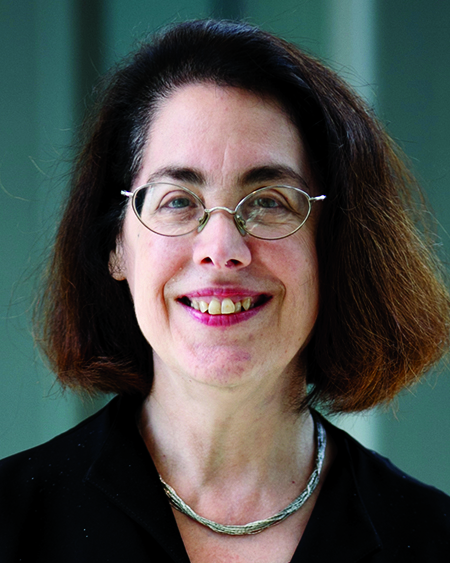
Arlene H. Sharpe
Harvard Med. Sch.
The biology behind PD-1 blockade
The FASEB Excellence in Science Lifetime Achievement Award recognizes excellence, innovation, leadership, and mentorship of a female established investigator whose research has contributed significantly to a particular discipline in biological science.
Saturday, May 13, 2023 1:45 PM – 2:30 PM Exhibit Hall D, Room 1
138. Exhibitor Workshop: Lunaphore Technologies
The Immunopathology of COVID-19 Placentitis: A Spatial Multi-omic Approach
Presenters
- Matthew Pugh, Dr., M.Sc. And B.Sc. FRCPath, MSc BSc (Hons) MBBCh (Hons)
- Jean Shanks, Pathsoc Intermediate Fellow, Associate Clinical Professor/ Honorary Consultant Histopathologist, Institute of Immunology and Immunotherapy, University of Birmingham
COVID-19 placentitis is a rare complication of maternal SARS-CoV-2 infection. We use multi-omic spatial profiling to characterise placentitis from obstetrically-complicated maternal COVID-19 infection. We found that SARS-CoV-2- infected placentas have a distinct transcriptional and immunopathological signature. Furthermore, quantitative spatial analyses revealed a unique microenvironment surrounding virus-infected trophoblasts characterised by PD-L1- expressing macrophages, T cell exclusion, and interferon blunting. I n contrast to uninfected mothers, ACE2 was localised to the maternal side of the placental trophoblast layer of almost all mothers with COVID-19, which may explain variable susceptibility to placental infection. Our results demonstrate a pivotal role for d irect-placental SARS-CoV-2 infection in driving the unique immunopathology of COVID-19 placentitis.
Saturday, May 13, 2023 1:45 PM – 2:30 PM Exhibit Hall D, Room 2
139. Exhibitor Workshop: peptides&elephants GmbH
Peptide Pools— Design, Manufacturing, and Application
Presenters
- Oliver J. Kreuzer, Ph.D.
The p&e’s peptide pools are a mixture of overlapping peptides with a length of 15 amino acids and an overlap of 11 amino acids that cover the complete amino acid sequence of their respective protein. They are used to activate protein-specific T cells, and are suitable to analyze T cell immunity after vaccination or to monitor the immune status after infection. They play a major role in adoptive cancer therapies by in vitro enrichment of tumor specific T cells. Next to the off-the-shelf peptide pools, p&e’s ultra-fast synthesis technology allows to manufacture your individual peptide pools for r&d and adoptive therapy approaches.
Saturday, May 13, 2023 1:45 PM – 2:30 PM Exhibit Hall D, Room 3
140. Exhibitor Workshop: Fortis Life Sciences
Validating Antibodies for Better Science and Better Medicine
Presenters
- Brian McWilliams, Ph.D., Product Manager
- Amber Miller, Ph.D., Flow Cytometry Scientist
- Aliyah Weinstein,Ph.D., Marketing Programs Manager
Unreliable data resulting from poorly-characterized antibodies jeopardizes the reproducibility of new discoveries. Yet there are no universal standards for manufacturing or validating antibodies. Antibody validation is crucial for ensuring that the antibody is specific, selective, and reproducible for its intended application. At Bethyl, our antibodies are highly regarded for passing strict validation testing before they arrive in our customers' hands. Learn critical questions to ask when purchasing antibodies and recommended methods for validating antibodies based on their intended application .
Saturday, May 13, 2023 2:00 PM – 3:30 PM
AAI Finance Committee Meeting
By invitation only
Saturday, May 13, 2023 2:30 PM – 3:45 PM Exhibit Hall D
Poster Session
141. Advances in Vaccinology and Immunotherapy Against Microbial Pathogens
142. Cellular Therapy
143. Cytokine and Chemokine Control of Cellular Immunity
144. Cytokines and Chemokines and Their Receptors
145. Cytokines and Vaccines for the Treatment of Cancer
146. Emerging Approaches in Oncology and Autoimmunity
147. LATE BREAKING: Corporate Immunology
148. Epigenetic and Metabolic Regulation
149. Epigenetic, Transcriptional, and Post-transciptional Regulation of Autoimmunity
150. Epithelial-Associated Immune Responses
151. Food Allergy, Atopic Skin, and Mast Cells
152. LATE BREAKING: Immediate Hypersensitivity, Asthma, and Allergic Responses
153. General Inflammation
154. Halt! Regulation of Lymphocyte Signaling
155. Immune Mechanisms of Human Disease: Autoimmunity
156. Immune Responses in the Respiratory Tract
157. Immunometabolism and Anti-tumor Immunity
158. Immunomodulation to Influence Vaccines, Immunotherapy, and Autoimmunity
159. LATE BREAKING: Vaccines and Immunotherapy
160. Innate Immunity, Infection, and Autoimmunity
161. Innate Sensing and Disease
162. LATE BREAKING: Innate Immune Responses and Host Defense: Molecular Mechanisms
163. Macrophages in Immune Regulation
164. LATE BREAKING: Immune Response Regulation: Cellular Mechanisms
165. Metabolic and Dietary Strategies to Treat Immune Diseases
166. LATE BREAKING: Therapeutic Approaches to Autoimmunity
167. Molecular Regulation of Innate Immunity
168. LATE BREAKING: Immune Response Regulation: Molecular Mechanisms
169. Myeloid Cells in Cancer Hosts II
170. T Cell Responses in Auotimmune Disease
171. T Cells in Cancer: From Memory to Exhaustion
172. LATE BREAKING: Tumor Immunology
173. Transplant Immunology
174. LATE BREAKING: Transplantation Immunology
175. Unconventional T Cells
176. Vascular Immunology
Saturday, May 13, 2023 2:30 PM – 3:45 PM Booth 5025
Special Activities at the AAI Booth
Visit these special guests at the AAI Booth (5025) on Saturday:
- Meet The Journal of Immunology Editor-in-Chief Eugene M. Oltz
- Ideas for sessions on bench to bedside? Discuss with members of the AAI Clinical Immunology Committee
Saturday, May 13, 2023 3:45 PM – 5:45 PM Room 101
177. Korean Association of Immunologists and Association of Korean Immunologists in America (KAI & AKIA) Symposium
Immune Cell Communications in Cancer and Inflammation
Chairs
- Minsoo Kim, Univ. of Rochester
- Su-Hyung Park, Korea Advanced Inst. of Sci. and Tech., South Korea
Speakers
- Eun D. Lee, Virginia Commonwealth Univ., Targeting ERAP2 for cancer therapy
- Eun Young Choi, Seoul Nat. Univ. Col. of Med., South Korea, Actin and microtubule cross-talks in immune synapse and the application to CAR T cell therapy
- Chang-Duk Jun, Gwangju Inst. of Sci. and Tech., South Korea, T cell microvilli shedding as a mechanism of T cell clonal expansion
- Myong-Hee Sung, NIA, NIH, Double knock-in reporter mice reveal NF-κβ trajectories in signaling, immune cell development, and aging
Saturday, May 13, 2023 3:45 PM – 5:45 PM Room 209ABC
178. Block Symposium
Diet/Microbiome and Metabolites in Health
Chairs
- Sangeeta Khare, NCTR, FDA
- Veena Taneja, Mayo Clin. Rochester
Speakers
- Verena M. Link, NIAID, NIH, Highly controlled nutritional interventions uncover defined immune and microbiome responses in human
- Rafael Aniu Peres-David, Univ. of Hawaii, Manoa, Gut microbiome and metabolites relate diabetes risk among Native Hawaiians and Pacific Islanders
- Priyanka Saminathan, La Jolla Inst. for Immunology, Bio-active lipids protect against immune-related adverse events due to immune checkpoint blockade therapy
- Marmar R. Moussa, Univ. of Connecticut Sch. of Med., Role of walnut-derived urolithins in reducing colonic inflammation in a patient cohort elucidated by an integrated omics analysis
- Taisuke Kondo, NCI, NIH, Harnessing arginine metabolism overcomes hyperthermia-induced metabolic dysfunction of CAR T-cells
- Adebowale Bamidele , Mayo Clin. Rochester, IL21 Receptor-Deficient Regulatory T Cells promote resolution of intestinal inflammation by resisting metabolic disturbance
- Sardar T.A.K. Sindhu, Dasman Diabetes inst., Kuwait, Endoplasmic reticulum stress promotes the expression of TNF-α in monocytic cells by mechanisms involving ROS/CHOP/HIF-1α and MAPK/NF-κB pathways
Saturday, May 13, 2023 3:45 PM – 5:45 PM Room 207A
179. Block Symposium
Host–Microbiota Crosstalk
Chairs
- Neil Surana, Duke Univ.
- Shipra Vaishnava, Brown Univ.
Speakers
- Girak Kim, NCI, NIH, Mucus sialylation determines intestinal host-commensal homeostasis
- Edward Ionescu, Univ. of Chicago, Gut microbiome-derived isodeoxycholic acid promotes mucosal immune non-responsiveness
- Chin Yee Tan, Duke Univ. Sch. of Med., A commensal-derived exopolysaccharide regulates ILC3-mediated diseases
- Robert T. Patry, Univ. of Chicago, The differential influence of commensal and pathogenic flagella on intestinal barrier function
- Deanna M Pepin, Univ. of British Columbia, A vanishing family of commensal bacteria and its impact on host health and disease
- Charlie Chung, Cold Spring Harbor Lab., Microbial regulation of anti-tumor immunity in colorectal cancer
- Teruyuki Sano, Univ. of Illinois, Chicago, Commensal-specific CD4 T cells can promote inflammation in the central nervous system via molecular mimicry
- Victor I. Band, NIAID, NIH, Sulfides in the gut mediate protection against gastrointestinal infection via alterations to local immunity and the microbiome
Saturday, May 13, 2023 3:45 PM – 5:45 PM Room 204ABC
180. Block Symposium
Innate Immune Signal Transduction Pathways during Infection
Chairs
- Sunny Shin, Perelman Sch. of Med., Univ. of Pennsylvania
- Jonathan Kagan, Boston Children's Hosp. and Harvard Med. Sch.
Speakers
- Neha Dubey, Washington Univ. Sch. of Med. in St Louis , Mycobacterium tuberculosis exploits FIP200 regulated cell-death pathways to promote replication
- Alexander Rapp, Geisel Sch. of Med., Dartmouth Col., Uncovering alterations in the murine interferon response due to dsRNA mycovirus during Aspergillus fumigatus infection
- Lynn Soong, Univ. of Texas Med. Br. at Galveston, Syk-dependent responses and Innate cytosolic defenses in Orientia tsutsugamushi-infected macrophages
- Reena Agrawal-Rajput, Indian Inst. of Adv. Res., Chlamydia trachomatis infection renders M2 generation to mediated immunosuppression
- Alex A. Compton, NCI, NIH, The extracellular tail of IFITM3 promotes SARS-CoV-2 entry into cells and is diversifying in primates
- Cheyanne Foster, Case Western Reserve Univ., Double DAMPs—NLRP3 priming of murine bone marrow derived mast cells with IL-33 leads to robust IL-1β secretion in a Gasdermin-D independent manner
- Thu R. Nguyen, Case Western Reserve Univ., Murine eosinophils release IL-1β via a non-lytic mechanism dependent on gasdermin D (GSDMD) expression but independent of GSDMD proteolytic processing
- George R. Dubyak, Case Western Reserve Univ., Lyososome membrane permeabilization induces plasma membrane macropores to activate K+-efflux-dependent NLRP3 inflammasomes in murine dendritic cells
Saturday, May 13, 2023 3:45 PM – 5:45 PM Room 202B
181. Block Symposium
Innate Lymphocytes in Cancer
Chairs
- Jose R. Conejo-Garcia, Duke University
- Kyle K. Payne, Rutgers Cancer Inst. of New Jersey
Speakers
- Pakhi Birla, Johns Hopkins Univ. Sch. of Med., Immune checkpoint blockade unleashes Mucosal Associated Invariant T (MAIT) cells in tumor microenvironment of NSCLC patients
- Natalia Lehman, Med. Univ. of Lublin, Poland, γδ T cells are significantly suppressed in glioma patients but retain their cytotoxic potential
- Subbarao Bondada, Univ. of Kentucky, Redox extracellular vesicles induce neurotoxic cytokine production from innate immune cells
- Valentina Cazzetta, Univ. of Milan, Targeting γδ T cells for the immunotherapy of endometrial cancer
- Emilie Boucher , Université Grenoble Alpes, Inulin enriched diet reinforces cancer immunosurveillance via γδ T cell activation
- Abdulaziz O. Alshwimi, Univ. of Cincinnati, Regulation of NK cell chemotaxis by KCa3.1 channels
- Priscila Silva, Goethe-University Frankfurt, Targeting lL-38 triggers γδ T cell-dependent anti-tumor immunity
- Valeriya Kuznetsova, Univ. of Alabama at Birmingham, Inflammation perturbs NK cell phenotype and function in chronic myeloid leukemia (CML)
Saturday, May 13, 2023 3:45 PM – 5:45 PM Room 207B
182. Block Symposium
Generously supported by JDRF
Innovations in the Manipulation of T Cells for Treating Autoimmune Diseases
Chairs
- Amit Awasthi, Translational Hlth. Sci. and Technol. Inst.
- Silva Markovic-Plese, Thomas Jefferson Univ.
Speakers
- Patrick Ho, Univ. of California, San Francisco, Elucidating inflammation-induced cell fate decisions in primary human Tregs
- Woogil Song, Korea Adv. Inst. of Sci. and Technol., Characterization and neutralization of pathologic memory CD4+ T cells in spondyloarthritis synovial fluid
- Manal Ali Elzoheiry, Thomas Jefferson Univ., Microparticle-delivered stimulator of interferon genes (STING) agonist suppresses experimental autoimmune encephalomyelitis (EAE) via expansion of FoxP3+ CD4+ Tregs
- James E. DiLisio, Univ. of Colorado Anschutz Sch. of Med., Suppression of IGRP-specific CD8 T cells following induction of tolerance to a Hybrid Insulin Peptide CD4 neoepitope
- Upasna Madan, Translational Hlth. Sci. and Technol. Institute, India, Artemotil mediates protection in experimental colitis through the induction of Type 1 regulatory T cells
- Andrew J. Leber, NIMML Inst., Activation of PHACTR2 with oral NIM-1001 treatment enhances regulatory CD4+ T cell function and provides protection from systemic lupus erythematosus
- Christine Bender, Benaroya Res. Inst., Ex vivo activation and fold-expansion of human regulatory T cells negatively correlates with preservation of beta cell function in adolescents with type 1 diabetes
- Kevin G. Senior, Univ. of Florida Col. of Med., Liver cells transduced with AAV.MOG increase the frequency of MOG-specific T regulatory cells capable of reducing EAE by adoptive transfer
Saturday, May 13, 2023 3:45 PM – 5:45 PM Room 102AB
183. Block Symposium
Into the Grove: Antigen Processing and Presentation
Chairs
- David H. Margulies, NIAID, NIH
- Paul Roche, NCI, NIH
Speakers
- Robin A. Welsh, Johns Hopkins Univ. Sch. of Med., HLA-DO promotes Treg differentiation by altering antigen presentation
- Kevin Hsu, NCI, NIH, Understanding NKT cells through sulfatide analogues
- Yating Li, Univ. of Texas MD Anderson Cancer Ctr., Investigating the role of Quaking in dendritic cells
- Rebecca Danner, Med. Col. of Wisconsin, Expanded presentation of Lyme autoantigens and identification of a novel immunogenic CD4+ T cell epitope from Borrelia burgdorferi MCP4 in murine Lyme arthritis
- Mark Andrew Maynes, Mayo Clin. Grad. Sch. of BioMed. Sci., Cell-specific MHC class I deletion on CD11c+ APCs abrogates CD8 T Cell infiltration into the brain
- Shaodong Dai, Univ. of Colorado Anschutz Med. Campus, Heterogeneous specificities of nickel presentation to nickel specific CD4 T cells
- Juliana Schneider Powell, Univ. of Pittsburgh Sch. of Med., Extracellular vesicles deliver feto-placental paternal antigens to maternal secondary lymphoid tissues for T cell recognition
- Nianbin Song, Johns Hopkins Univ. Sch. of Med., Loss of HLA-DO function impairs the development of memory CD4 T cells
Saturday, May 13, 2023 3:45 PM – 5:45 PM Room 206
184. Block Symposium
Novel Therapeutic Targets for Controlling Immune Responses and Dampening Inflammation
Chairs
- Brad Hoffman, Univ. of Florida
- Steven Kerfoot, Univ. of Western Ontario
Speakers
- Joshua A. Taylor, NIA NIH, Unmasking arterial-resident autoreactive B cells involved in atherosclerosis and peripheral Artery disease progression
- Maroua Ferhat, OncoOne Res. & Dev. GmbH, Austria, ON104, a novel antibody targeting oxidized macrophage migration inhibitory factor (oxMIF) shows efficacy in preclinical models of chronic inflammation
- Amber Simone Griffith, Washington Univ. Sch. of Med. in St. Louis, Selective targeting of auto reactive B cells using bispecific molecules
- Shaikh Nisar Ali, Long Island Univ., 1,25-dihydroxy vitamin D enhances the differentiation of intestinal stem cells Ex Vivo and In Vivo
- Steven Kerfoot, Univ. of Western Ontario, Systemic administration of anti-CD20 indirectly reduces B cells in the inflamed meninges in a chronic model of central nervous system autoimmunity
- Lauren Stewart Stafford, Univ. of Florida, Novel bio-signature for the topical administration of a suppressor of cytokine signaling-1 mimetic to the equine eye: implications in treatment of recurrent uveitis (RU)
- Gaurav Kumar, Oklahoma Med. Res. Fndn., BAFF and APRIL signaling through BCMA regulates microglial cells in the central nervous system.
- Insha Zahoor, Henry Ford Health, Pro-resolution lipid mediator maresin-1 reduces inflammation, promotes neuroprotection, and prevents disease progression in multiple sclerosis model of autoimmunity
Saturday, May 13, 2023 3:45 PM – 5:45 PM Room 201
185. Block Symposium
Regulatory T Cell and Macrophage Function in Health and Disease
Chairs
- Bonnie N. Dittel, Versiti Blood Res. Inst.
- Richard Robinson, Ohio State Univ.
Speakers
- Xuan Xie, NIAID, NIH, Eos is a critical transcription factor for T regulatory cell (Treg) function
- Mohammad Nizam Mansoori, NIAID, NIH, CD4+Foxp3+ Tregs suppress antigen-specific CD8+ T cells in vivo by generating an alternative immune synapse resulting in defective T cell activation
- Chaoran Li, Emory Univ. Sch. of Med., Obesity-induced dysregulation of a unique subset of Tregs promotes skin inflammation
- Daniel Seong-Joo Shin, Boston Childrens Hosp., Lung injury induces preferential expansion of Foxp3+ regulatory T cells over conventional T cells in self-antigen specific CD4+ T cell repertoire
- Romaniya Zayats, Univ. of Manitoba, Canada, Regulatory T cells aid Leishmania major immune evasion by suppressing effector responses against the parasite in an antigen-specific manner
- Tej Ptatap Singh, Univ. of Pennsylvania Sch. of Vet. Med., Regulatory T cells limit opportunistic colonization of Staphylococcus aureus to promote lesion resolution in cutaneous leishmaniasis
- June Guha , NIH, NF kappa B regulator Bcl3 controls development and function of classical dendritic cells required for resistance to Toxoplasma gondii
- Ahmed Rakib, Univ. of Tennessee Hlth. Sci. Ctr., Ablation of Siglec-E enhances adipose tissue inflammation through CXCR3 activation and induces monocytic myeloid-derived suppressor cells
Saturday, May 13, 2023 3:45 PM – 5:45 PM Room 202A
186. Block Symposium
Vaccination against Pathogens at Different Stages of Life and Disease
Chairs
- Bronwyn Gunn, Paul G. Allen Sch. of Global Hlth., Washington State Univ.
- David Weiner, Univ. of Pennsylvania
Speakers
- Alper Cevirgel, Dutch Natl. Inst. for Public Hlth. and the Environment, Netherlands, Baseline immunotypes reveal weak and strong antibody responders to influenza vaccination
- Jacob S. Fisher, Mayo Clin., Aging is associated with accumulated T follicular helper cells with decreased metabolic function
- Sathya Baarathi Shanthi Ravichandran, Jackson Lab. for Genomic Med., Pre-vaccination CD56dim CD16+ NK cell abundance and Th1/Th17 ratio predict responsiveness to conjugated pneumococcal vaccine in older adults
- Gina Cusimano, Drexel Univ. Col. of Med., Adenosine deaminase augments SARS-CoV-2 specific cellular and humoral responses in aged mouse models of immunization and challenge
- Elizabeth A. Thompson, Johns Hopkins Univ. Sch. of Med., Heterologous versus homologous boosting regimens elicit qualitatively distinct, BA.5cross reactive T cells in transplant recipients
- Jesse M. Hall, Ohio State Univ. Col. of Med., Characterizing the cellular and humoral immune responses to Tdap during pregnancy compared to non-pregnant controls
- Cody Lauritsen, Paul G. Allen Sch. of Global Hlth., Washington State Univ., Passive antibody transfer from pregnant women to their fetus are maximized after SARS-CoV-2 vaccination irrespective of prior infection
- Caitlin Williams, Weill Cornell Med., SARS-CoV-2 vaccine-elicited antibody responses in breastmilk
Saturday, May 13, 2023 4:30 PM – 5:30 PM Ballroom AB
187. AAI-Thermo Fisher Meritorious Career Award Presentation and Lecture
Generously supported by Thermo Fisher Scientific
AAI President Mark M. Davis and Rhonda Newman, Thermo Fisher Scientific, will introduce the awardee and present the award immediately prior to Dr. Wu’s lecture.
Chair
- Gary A. Koretzky, Cornell Univ. and Weill Cornell Med., AAI Past President
Award Recipient
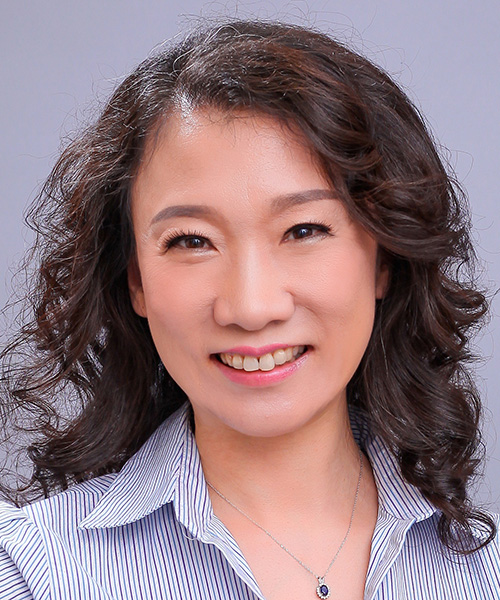
Hao Wu
Harvard Med. Sch. and Boston Children's Hosp.
Inner workings on the inflammasome engine
The AAI-Thermo Fisher Meritorious Career Award recognizes a mid-career scientist for outstanding research contributions to the field of immunology.
Saturday, May 13, 2023 6:00 PM – 6:45 PM Ballroom AB
188. Distinguished Lecture—Carla V. Rothlin
Generously supported by BD Biosciences
Chair
- Cathryn R. Nagler, Univ. of Chicago, AAI Program Committee Chair
Speaker
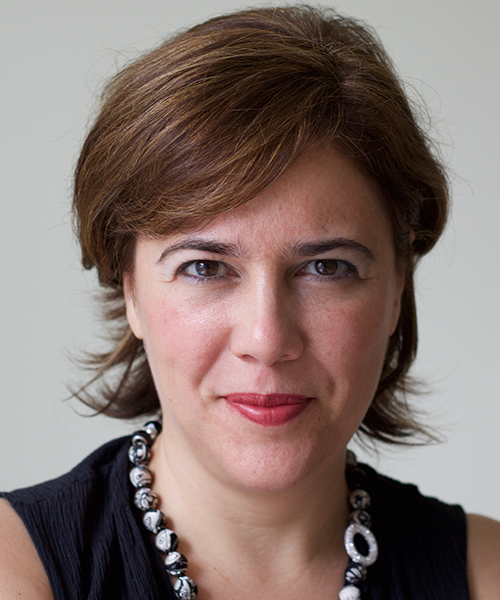
Carla V. Rothlin
Yale Sch. of Med.
Principles of resolving and non-resolving inflammation
Saturday, May 13, 2023 7:30 PM – 10:00 PM
AAI President’s Service Appreciation Reception
Generously supported by BioLegend
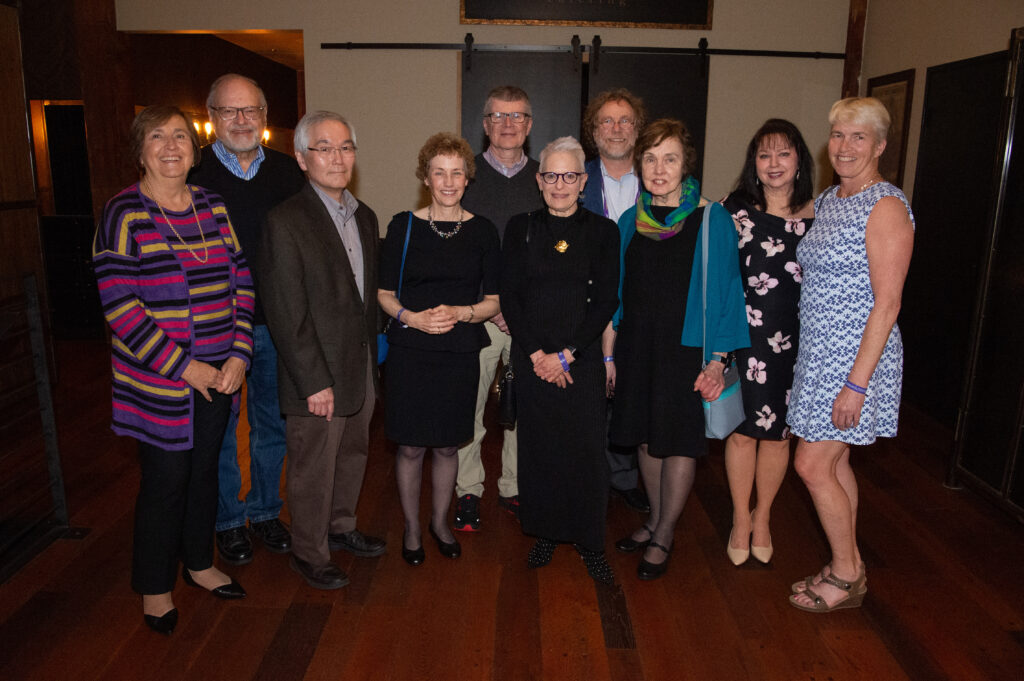
The annual President's Service Appreciation Reception is hosted by the AAI Council in honor of the dedicated volunteers who give generously of their time to serve the association as committee chairs and members, journal editors, and in other crucial roles.
(Badge and invitation are required.)
